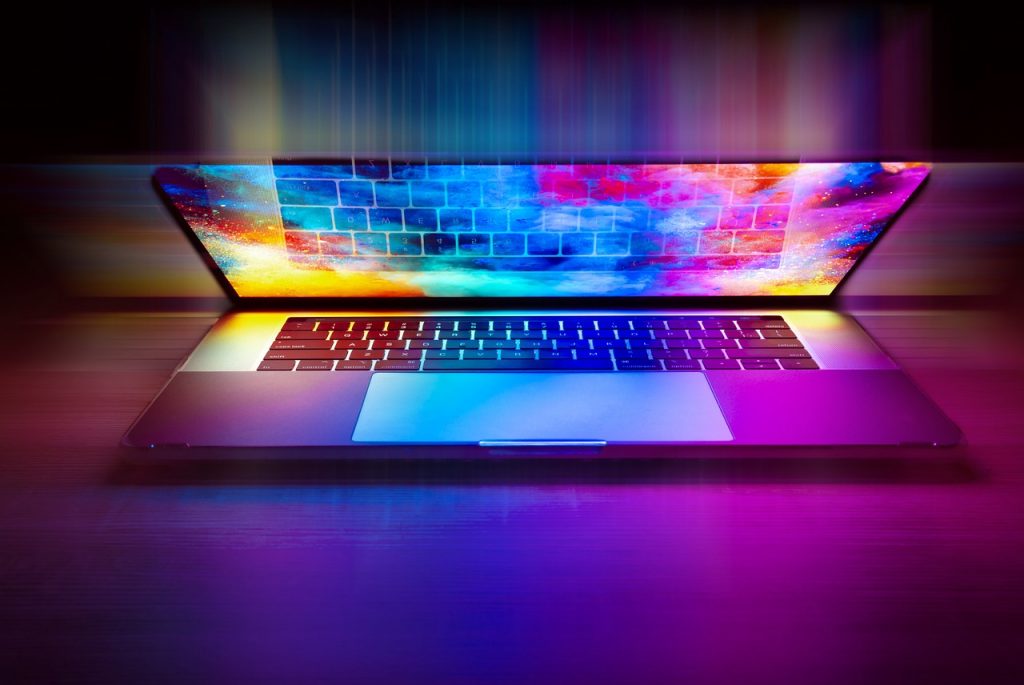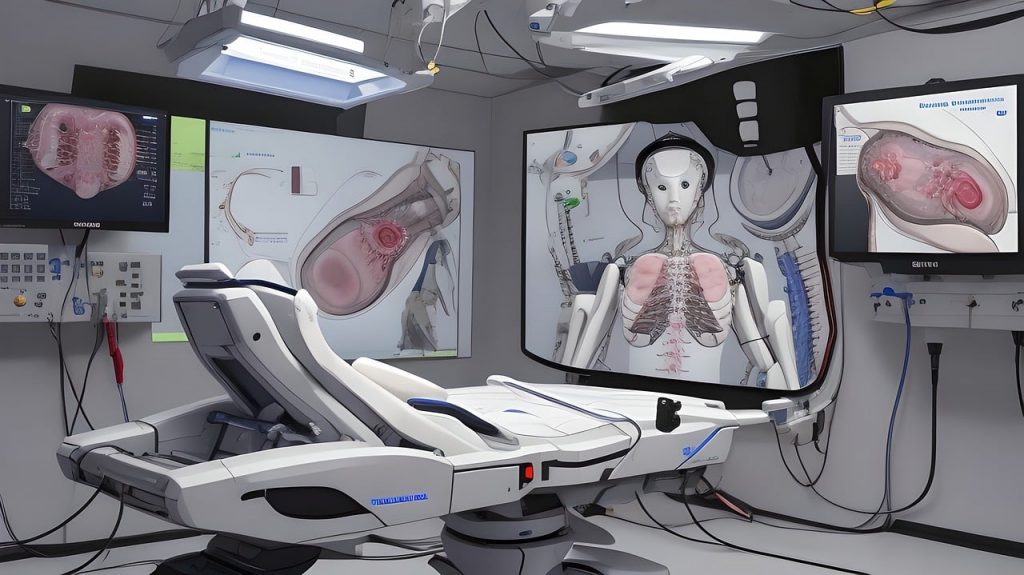My experiences with Digitalization
Digitalization plays a significant role in my life. Previously, I thought I wasn’t very tech-savvy, but upon reflecting on my daily life, digital solutions permeate it. The most prominent is my smartphone, which is usually always in my hand if there’s nothing else to do. I also couldn’t manage without my smartwatch. Through my studies, I’ve become familiar with ChatGPT, which has proven to be a handy assistant. I’ve used it for translations and to seek new ideas or perspectives for assignments. I also actively use WhatsApp and Facebook to stay in touch with friends. I primarily rely on traditional methods in my studies. I’m at school on most days and attend courses in the school library. Of course, electronic materials are extensively used in courses as well.
When I started as a student in the nursing wards, the recording was done by the doctor’s rounds with pen on paper. The doctor´s orders and given prescriptions were recorded in the patient information system after the round. The prescriptions printed on the medicine tray. After a few years, I moved to an operating room environment, and I haven’t been back to bed wards since then. I don’t know how the process works at the moment. I think that all logging is done directly on the patient information system on the doctor´s round. I would imagine that the distribution of medicines is also automated. Digitalization has greatly transformed social and healthcare. Electronic prescriptions and accessing one’s data through OmaKanta are available to all citizens.
There were paper-based patient report forms in the operating rooms, that were used for documentation in the early stages of my career. Documentation was a significant task that had to be done at least every 5 minutes during anesthesia work. As the systems developed, the values of vital functions began to be transferred electronically directly to the patient information system. Reports were printed on paper for a long time. Printing was stopped only in recent years and electronic patient information systems remained.
Robotics is already being used in several specialties in operating theaters. A surgical robot was used to perform urological surgeries in my previous workplace at HUS (Helsinki University Hospital). The wounds of surgeries performed with a robot-assisted were smaller and patients recovered faster. The robotics could be used much more than at present, but the price of the equipment limits their purchase. I have read that robot-assisted surgeries could even be performed remotely from another country, but there has not yet wanted to try this in Finland. There are many possibilities for using robots not only in urological surgeries, for example, in orthopedic and gynecological surgeries.

Data protection in the EU
The General Data Protection Regulation (GDPR) refers to the comprehensive data protection regulation that governs personal data. The regulation came into force in 2018. For example, personal data includes information such as names, addresses, phone numbers, or patient records. GDPR provides individuals with the opportunity to better control and manage their personal data.
I believe that unified data protection brings consistency in the documentation for businesses and organizations in the EU. It establishes a foundation upon which the operations can be built. It’s also the safest option at the moment. I think it’s good that citizens can see their data and can allow or deny its usage as they see fit. This brings transparency to data processing. I also think that the possibility of correcting recorded information adds value to its usage. In my opinion data protection affects my work in operating rooms in such a way that I only use work email for work-related matters. Patient information should not shared on USB drives or emails. It should be handled only on workplace computers within patient information systems.
I’ve been on parental leave for over two years and away from work, so I’m not aware of the newest practices. But I think operating rooms still operate with fairly traditional methods at the moment. I think healthcare professionals who work remotely using electronic tools like chat or applications need to consider security issues more. The work may be done at the employee’s home and clients may use their phone app for health-related matters. I think unified data protection encompasses the benefits mentioned above, but the risks can also be significant if data protection is breached. The damage is immense when everything is reliant on one card. Additionally, I am somewhat skeptical about the strength of data protection and believe that criminals are often one step ahead of data protection, as evidenced by Vastaamo. I’m not aware of specific cybersecurity flaws, but there have been.
The biggest risks of an open digital society are directed towards children in my own life. I’m worried that children may not fully understand the dangers of digitalization. I believe that parents have a significant responsibility to teach children the rules of digitalization, taking into account the child’s age. For example, sharing pictures of the child should be carefully considered together and understanding that the images will remain on the internet permanently.

Operating theatres in the future
Digitalization, artificial intelligence (AI), and machine learning will offer tools for identifying various cancers or diagnosing other malignant diseases in the future. Artificial intelligence could act as a hybrid tool that would analyze data and identify abnormal samples or symptoms. In addition, AI could serve as an aid in the management of medical information. The challenge of the future is to combine the doctor’s work and artificial intelligence, which at best can offer a lot of added value in patient care.
Artificial intelligence can also be used in preventive healthcare in the future. AI can be used to search patient systems for possible risk information, which could be used to make predictions.
Artificial intelligence provided prospects such as robotics and automation. Their advantages include efficiency, minimizing human errors, and allowing staff to focus on other tasks. 3D printing can be used to manufacture prostheses or implants. Virtual reality enables surgeons to practice and enhances their professional skills. Smart sensors, on the other hand, can improve the monitoring of patient’s conditions during surgery, and sterilization techniques may involve UV light in the future, ensuring a cleaner outcome. Finally, AI mentions remote connection, which is already in use in the operating room. This allows for consultation even from the other side of the world.
I think the responses provided by artificial intelligence were very realistic, showing what the future could be at its best. I believe AI can be used for brainstorming on topics where one already has prior knowledge. But there’s a risk associated with brainstorming on completely unknown topics because there might not be enough criticality in handling the subject. I’m even a bit scared of how accurate responses ChatGPT can provide.

Evaluation
My professional studies included the Digital Solutions online course, where I delved into a previously unfamiliar topic. I believe this course deepens my existing knowledge and also allows me to practice using the English language. The content of the course is different because this is multidisciplinary and open to all students. Foreign language is the most challenging part of this course, which I hope will improve during the course. It would have been easier to write the assignment if you had known the latest trends in the operating room.
In my opinion GDPR is a bit difficult to understand. It’s very broad and extensive, yet it affects all citizens. As a nurse, I’m familiar with the strict regulations regarding patient data, but GDPR impacts all entities. On the other hand, awareness of the underlying data protection should create a sense of security in everyday life.

My Comments to Fellow Students
Thank you, Anne, for your thoughts! I am also a welfare coordinator student. I have worked in the healthcare field for about 15 years, with at least 10 years in an operating room unit. We should continuously progress our skills and knowledge to keep up with developments. I understand that continuous learning is necessary in the modern age, but sometimes I wonder how much development and learning new things can be demanded from staff. Continuous learning is also difficult, although, on the other hand, it brings challenges to work. Sometimes, I also wonder what would happen if the system crashed and data could not be saved. Although this is probably not possible, it’s still a concern. /Anne Kärkkäinen
Thanks for sharing your thoughts! I agree that not all of the patient information systems serve their users and customers. Recently, it has been talked about how healthcare professionals spend a lot of time working on the computer and that time is spent away from patients. I agree with you that the systems should be developed so that they make work easier. On the other hand, it was mentioned in the second course that technology professionals are not necessarily even interested in developing healthcare systems. Is the reason then that it is not financially viable?
You wrote the memories of your childhood. I have similar experiences of my own, for example, dad´s a huge mobile phone and the telephone cards, that you can call somebody in the kiosk. /Sari Lahtoniemi
Sources:
ChatGPT 3.5
European Council. Data protection in EU.
Helsingin ja Uudenmaan sairaanhoitopiiri 2022. Uudella leikkaussalirobotilla modernia kirurgiaa yhä useammalle potilaalle. https://www.hus.fi/ajankohtaista/uudella-leikkaussalirobotilla-modernia-kirurgiaa-yha-useammalle-potilaalle
Tietosuoja. https://tietosuoja.fi/usein-kysyttya-gdpr
Trocin, C., Skogås, J.G., Langø, T., Kiss, G.H. (2022). Operating Room of the Future (FOR) Digital Healthcare Transformation in the Age of Artificial Intelligence. In: Mikalef, P., Parmiggiani, E. (eds) Digital Transformation in Norwegian Enterprises . Springer, Cham. https://doi.org/10.1007/978-3-031-05276-7_9
Vahteristo, A. M. K., & Kinnunen, U.-M. (2019). Tekoälyn hyödyntäminen terveydenhuollossa terveysriskien ja riskitekijöiden tunnistamiseksi ja ennustamiseksi. Finnish Journal of EHealth and EWelfare, 11(3), 198–209. https://doi.org/10.23996/fjhw.77582
Photos:
Helsingin ja Uudenmaan sairaanhoitopiiri
Pixabay



Hi Päivi,
I didn’t think that artificial intelligence could be used in studies until I read this text of yours.
And really how digitization is a part of our everyday life. Sometimes you can see how it is also a part of many moments where you don’t necessarily even need to be.
I have also paid attention to the development of healthcare in every field. How much changes can be seen in the workplace, even if I don’t work there myself.
Thank you for your thoughts!
Hi Päivi,
Your blog post on digitalization provides a comprehensive look at its impact, especially in healthcare. Your firsthand experience with the shift from paper-based records to electronic systems offers valuable insights into the transformation process. Your reflections on the role of GDPR in data protection and the potential of AI in healthcare are particularly interesting.
I appreciate your thoughtful analysis of the challenges and opportunities posed by digitalization, especially in regards to patient privacy and security. Your concerns about children’s digital safety are also important to consider in today’s increasingly connected world. Thank you for sharing your experiences and insights.
Thanks for the encouraging feedback!